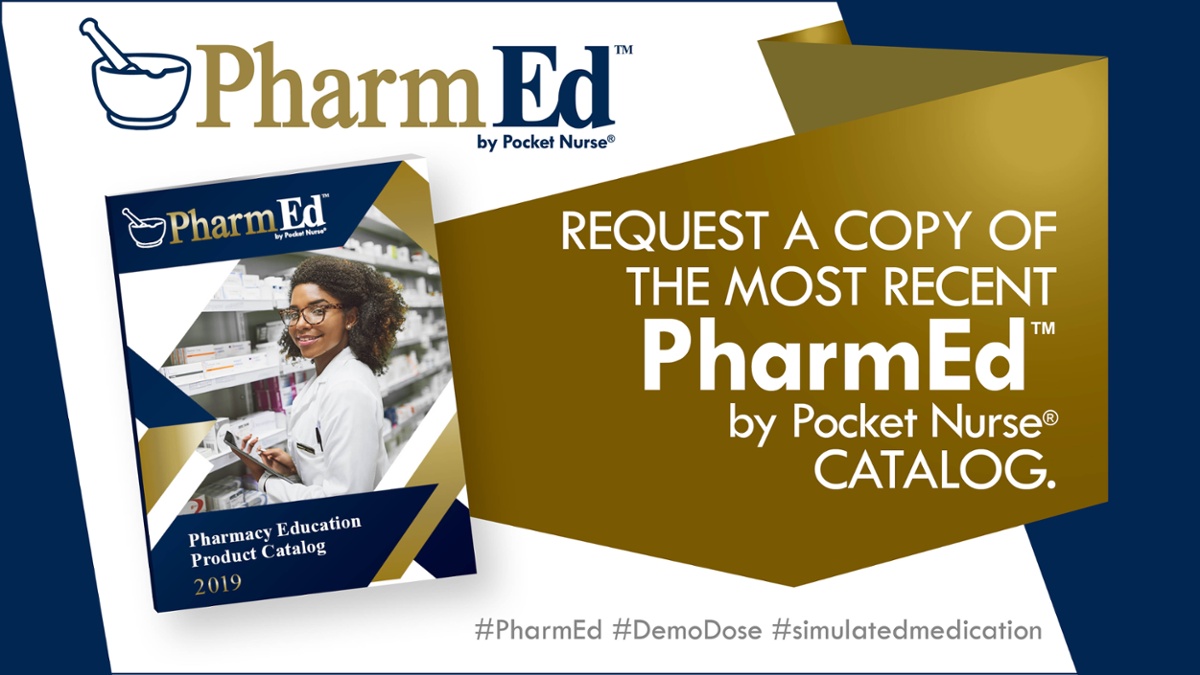
With the class of 2019 prepared to enter post-secondary education and the workforce, many are looking for a stable career that offers opportunity and growth. Becoming a pharmacy technician is a good option. Job growth in this field is expected to increase by 20 percent through 2022.
Education
Although there are no set national standards for pharmacy technicians (pharm techs), a high school education or equivalent is necessary to enter the field. While one can became a seasoned pharm tech through hours of on-the-job training, many states encourage certification through post-secondary programs. The American Society for Health System Pharmacists (ASHP) in collaboration with the Accreditation Council for Pharmacy Education (ACPE) created the Pharmacy Technician Accreditation Commission. The PTAC provides accreditation for pharm tech programs to “ensure standardized quality, accredited training of technicians.”
Read 5 Ways Simulation Enhances Pharm Tech Programs
Work Environments
In general, pharm techs work in clean, orderly environments, spending a good deal of time on their feet. They work under the supervision of a pharmacist, and pharm tech hours will be similar to the hours for a pharmacist for that reason. Pharmacy hours vary from industry to industry, depending on the type of workplace.
- Retail pharmacy: A retail pharmacy can be an independent business or part of a local or national chain. Pharm techs in a retail pharmacy will interact with the general public, fill prescriptions, submit prescription claims to insurance companies, and do other day-to-day tasks of pharmacy operations.
- Hospital pharmacy: A pharm tech working in a hospital environment will interact less with the public. Hospital pharm techs fulfill doctor medication orders and prepackage medications for patients. Pharm techs in hospitals will become familiar with parenteral drugs, chemotherapy drugs, IV medications, and filling automated dispensing carts and cabinets.
- Rehab centers: Rehabilitation centers that cater to patients with mental health or substance abuse problems also offer their patient private pharmacy services for on-site medication and prescription filling. Pharm techs in these environments may work under the supervision of a nurse or rehab specialist.
Certifications and Continuing Ed
Dedicated pharm techs will seek out accredited programs at community colleges that can be completed in a year. Some pharm techs will undertake 2-year programs to receive an associate’s degree.
Pharm techs will take classes in the following areas:
- Pharmacy calculations and arithmetic
- Recordkeeping
- Methods of dispensing medications
- Pharmacy laws and ethics
- Medical terminology
- Physiology
- Pharmacology
To maintain certifications and because the pharmacy industry is continually evolving, pharm techs are expected to complete at least 20 hours of continuing education (CE) annually.
Many pharm tech and pharmacy programs are using simulated retail and hospital environments to educate their students about dealing with the public, giving immunizations, mixing medications, and otherwise familiarizing themselves with the conditions of those environments.
Source: www.totalpharmacysupply.com/pharmacy_techs/







